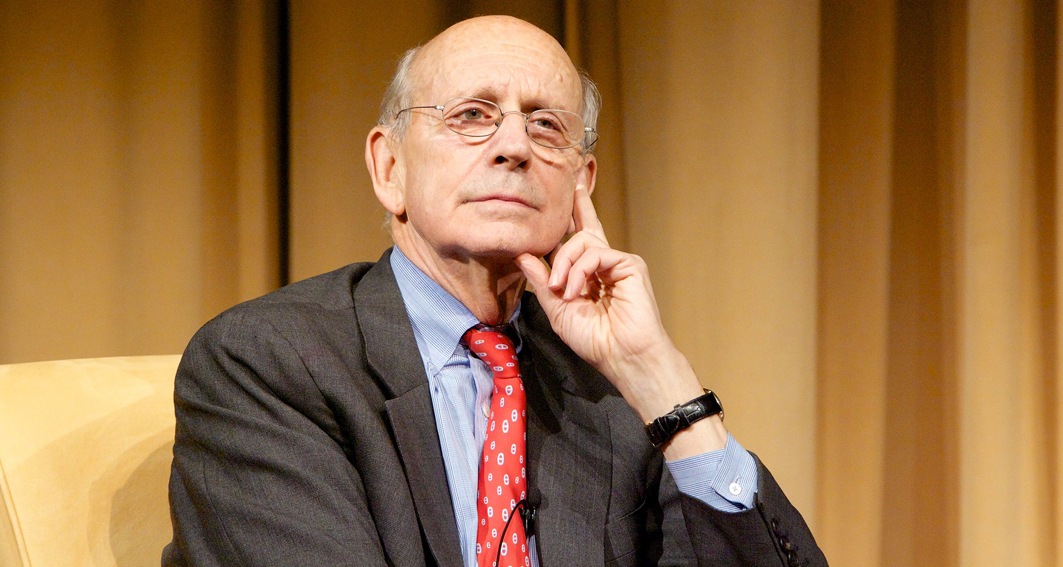The Left is always worrying that its favorite act of judicial activism, Roe v. Wade, will one day be overturned. That’s why we spend inordinate amounts of time watching Supreme Court judicial confirmation hearings where pro-abortion senators grill the latest nominee about strange topics like “super-duper precedent.”
Roe can never be overturned, the argument goes, because it’s been around a long time. At least that’s what pro-abortion supporters say.
Including, it seems, Justice Stephen Breyer, a President Clinton appointee who has served on the U.S. Supreme Court since 1994. He’s been dropping hints that Roe might be in danger.
In a decision handed down on Monday from the high court in a non-abortion case, a 5-4 majority consisting of all five conservatives (Chief Justice John Roberts, and Justices Clarence Thomas, Samuel Alito, Neil Gorsuch and Brett Kavanaugh) overturned a 1979 Supreme Court decision on the decidedly un-fascinating subject of sovereign immunity of states who are sued in the courts of other states.
Justice Breyer issued a dissent in Monday’s decision, in which he chided the majority for overturning the 1979 case. That’s fine; the Supreme Court frequently overturns its own “precedent” and the justices oftentimes disagree over whether that’s appropriate. But Breyer stirred up the Left with his next-to-last line: “Today’s decision can only cause one to wonder which cases the Court will overrule next.”
That one line caused several “Is Breyer warning us about Roe?” articles from the New York Times, NBC News, and CNN, among numerous others.
The over-the-top hyperbole from Justice Breyer and the media is unwarranted. Justice Breyer, along with anyone vaguely familiar with how the Supreme Court works, knows that the Court has overruled its own precedent over 300 times throughout its history, and five dozen of those were more long-standing than Roe, which just passed the 46-year mark.
There’s nothing sacrosanct about the longevity of a Supreme Court decision. If there were, then our country might still be operating race-segregated facilities such as those approved by the Supreme Court in 1896 in Plessy v. Ferguson, rather than living in a fully integrated society that began with the Court’s 1954 decision in Brown v. Board of Education some 58 years later that implicitly overruled Plessy.
Justice Breyer has no qualms about overturning Supreme Court precedent when he wants to. In the infamous Lawrence v. Texas case from 2003, the Supreme Court struck down the Texas criminal statute prohibiting sodomy. In joining the majority opinion written by Justice Anthony Kennedy, Breyer agreed that the prior 1993 Supreme Court decision upholding a similar Georgia sodomy statute, Bowers v. Hardwick, must be overruled. The Lawrence decision led directly to the same-sex marriage decision in Obergefell v. Hodges in 2015, which included Breyer’s vote in favor.
So Justice Breyer can’t have it both ways: overturning precedent he doesn’t like, but ominously warning of the consequences of overturning it in another case. It smacks of intentionally throwing red meat to the Roe-supportive media in order to stir up criticism of his conservative colleagues. That type of media manipulation would be unbecoming of someone like Breyer, whose judicial demeanor and public statements during his years on the Court have been characterized by grace and good will.
But whether intentional or not, Breyer has stoked the pro-Roe fires of the most ardent abortion supporters and directed their heat against his conservative colleagues on the Court. That is, unfortunately, not helping to ease the public divisiveness over the topic of abortion, nor does it help the public’s confidence in the soundness of the Court’s work.






